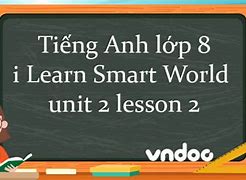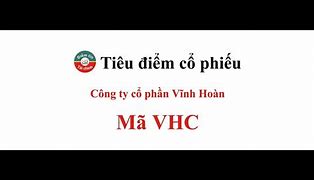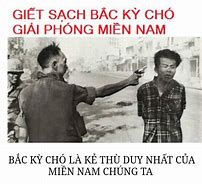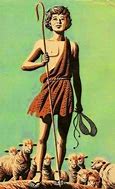
Tiếng Anh Lớp 8 Sách Mới Unit 8 Skills 2
There are some things I like about life in the countryside. The peaceful environment is so relaxing. There are no loud noises or busy streets like in the city. I also love the fresh air and the beautiful scenery. Moreover, people have a sense of community here. They are friendly and supportive, and I feel like I am part of a family. I can communicate more easily with villagers than with people in cities. The environment is less polluted than in the city because there are just a few cars and factories. Overall, life in the countryside brings me more happiness.
There are some things I like about life in the countryside. The peaceful environment is so relaxing. There are no loud noises or busy streets like in the city. I also love the fresh air and the beautiful scenery. Moreover, people have a sense of community here. They are friendly and supportive, and I feel like I am part of a family. I can communicate more easily with villagers than with people in cities. The environment is less polluted than in the city because there are just a few cars and factories. Overall, life in the countryside brings me more happiness.
Listen again and circle the correct answers A, B or C.
Ethnic minority children might live a life different from that of most Kinh's Children. They spend some of their time helping their parents inside and outside the house. They learn to work from an early age, usually at six. Girls help look after the house, care for smaller children, weave clothing and prepare food. Boys learn to do what their fathers do. They grow crops, raise the family's livestock and catch fish. In the evening, the family often gathers around the open fire. Children listen to stories or legends of heroes from their grandparents. They also listen to adults talk about their work. This is how the elders pass on traditions and knowledge to their children. Nowadays, more and more minority children are going to school. There, they meet children from other ethnic groups. They play new games and learn new things.
1. Minority children usually learn to work at _____.
A. twelve B. ten C. six
Vị trí thông tin: They learn to work from an early age, usually at six.
Giải thích: Bài nghe cho biết trẻ em dân tộc thiểu học cách làm việc từ khi còn nhỏ tuổi, thường là 6 tuổi. Vì vậy, đáp án đúng là C
A. weave clothing B. do the gardening C. catch fish
Vị trí thông tin: Girls help look after the house, care for smaller children, weave clothing and prepare food.
Giải thích: Trong các hoạt động các bạn gái làm có “weave clothing” (dệt vải) nhưng không có công việc”do the gardening (làm vườn) và “catch fish” (bắt cá) nên không chọn phương án B và C.
A. prepare food B. raise livestock C. do housework
Vị trí thông tin: Boys learn to do what their fathers do. They grow crops, raise the family's livestock and catch fish.
Giải thích: Trong các công việc các bạn trai làm có “raise livestock” (nuôi gia súc) nhưng không có công việc “prepare food” (chuẩn bị đồ ăn) và “do housework” (làm việc nhà) nên không chọn phương án A và C.
4. Children learn traditions through _____.
A. work B. music C. stories
Vị trí thông tin: Children listen to stories or legends of heroes from their grandparents. This is how the elders pass on traditions and knowledge to their children.
Giải thích: Bài nghe có thông tin trẻ em nghe các câu chuyện và huyền thoại về các anh hùng từ ông bà và đây là cách mà người lớn truyền lại những truyền thống và kiến thức cho con cháu của họ. Không có thông tin trẻ em học về truyền thông thông qua công việc và âm nhạc nên không chọn phương án A và B.
5. The number of minority children going to school is _____.
A. going up B. going down C. staying the same
Vị trí thông tin: Nowadays, more and more minority children are going to school.
Giải thích: Bài nói cho biết ngày càng nhiều trẻ em dân tộc thiểu số đến trường. Thông tin này đồng nghĩa với thông tin số lượng trẻ em thiểu số đến trường đang tăng lên (going up). Thông tin số lượng giảm xuống (going down) và giữ nguyên (staying the same) là sai nên không chọn đáp án B và C.
Match the phrases with the correct pictures.
catching fish/ˈkæʧɪŋ fɪʃ/: đánh bắt cá → c
weaving clothing /ˈwiːvɪŋ ˈkləʊðɪŋ/: dệt vải → a
growing crops /ˈɡrəʊɪŋ krɒps/: trồng trọt → b
Work in pairs. Discuss the following question.
What do you like or dislike about life in the countryside?
A: Do you like life in the countryside?
B: Yes, of course. I love quiet and peaceful villages. I can do many activities in nature such as going fishing, flying a kite, and swimming in a lake. I think it’s very enjoyable to live in the countryside.
(A: Bạn có thích cuộc sống ở nông thôn không?
B: Vâng, tất nhiên. Tôi yêu những ngôi làng yên tĩnh và thanh bình. Tôi có thể thực hiện nhiều hoạt động trong tự nhiên như đi câu cá, thả diều và bơi trong hồ. Tôi nghĩ sống ở nông thôn rất thú vị.)
Hướng dẫn giải UNIT 1 LỚP 8 SKILLS 2 - LISTENING - sách mới
1. What do you usually do with your friends in your free time?
(Bạn thường làm gì với bạn bè trong thời gian rảnh?)
I usually go shopping, play team sports, cook at home with my family, share favourite books with friends.
(Tôi thường đi mua sắm, chơi các môn thể thao đồng đội, nấu ăn ở nhà với gia đình, chia sẻ những cuốn sách yêu thích với bạn bè.)
2. Listen to the radio programme and answer the questions.
(Nghe chương trình radio và trả lời những câu hỏi.)
In this week’s programme we’ll share with you some cool ways to hang out with your best friends after a busy week at school.
(Trong chương trình tuần này, chúng tôi sẽ chia sẻ với bạn một số cách thú vị để đi chơi với những người bạn thân nhất của bạn sau một tuần bận rộn ở trường.)
Basically you can hang out indoors.
(Về cơ bản bạn có thể tụ tập ở trong nhà.)
If you like staying indoors, ask your parents if you can invite one or two friends over.
(Nếu bạn thích ở trong nhà, hãy hỏi cha mẹ của bạn xem bạn có thể mời một hoặc hai người bạn đến không.)
Make some popcorn! Watch a movie! It’s more comfortable than going to a cinema!
(Làm một ít bỏng ngô! Xem phim! Sẽ thoải mái hơn là đi xem phim ngoài rạp!)
Or if you’re feeling creative, you can make crafts together.
(Hoặc nếu cảm thấy có hứng sáng tạo, các bạn có thể cùng nhau làm đồ thủ công.)
You’ll feel satisfied once you finish something.
(Bạn sẽ cảm thấy hài lòng khi bạn hoàn thành một thứ gì đó.)
If you fancy being outdoors, play some sports together. Football, badminton, biking... you name it!
(Nếu bạn thích ở ngoài trời, hãy cùng chơi một số môn thể thao. Bóng đá, cầu lông, đi xe đạp ... bạn hãy liệt kê các môn ấy ra!)
Or it can simply be a relaxing walk in the park.
(Hoặc đó có thể chỉ đơn giản là đi bộ thư giãn trong công viên.)
All these activities are good for your physical health.
(Tất cả những hoạt động này đều tốt cho sức khỏe thể chất của bạn.)
Do you prefer something more exciting? Go downtown and to do some people watching. It’s fun.
(Bạn thích cái gì thú vị hơn không? Hãy đi vào trung tâm thành phố và ngắm người qua lại. Điều đó rất vui.)
If you like something more organised, go to cultural centres, libraries, and museums. Educate yourself while having fun!
(Nếu bạn thích một thứ gì đó có tổ chức hơn, hãy đến các trung tâm văn hóa, thư viện và bảo tàng. Vừa tự học vừa chơi vui!)
What is the topic of this week’s programme?
(Chủ đề của chương trình tuần này là gì?)
Đáp án: The topic of this week’s programme is hanging out with your friends.
Giải thích: Ta tìm thấy câu trả lời trong câu nói đầu tiên của người dẫn chương trình: In this week’s programme we’ll share with you some cool ways to hang out with your best friends after a busy week at school. Câu trả lời có nghĩa là: Chủ đề của chương trình tuần này là đi chơi cùng bạn bè.
Which two main ways does the programme suggest you can hang out with your friends?
(Hai cách chính nào mà chương trình gợi ý bạn có thể đi chơi cùng bạn bè?)
Đáp án: There are 2 main ways: hanging out indoors and outdoors.
Giải thích: Trong đoạn băng có nói: Basically you can hang out indoors. Câu trả lời có nghĩa là: Có 2 cách chính: đi chơi trong nhà và bên ngoài.
3. Listen again and complete the table.
(Nghe lần nữa và hoàn thành bảng sau.)
5- physical health (sức khỏe thể chất)
7 - cutural centres (các trung tâm văn hóa)
Listen to three people talking about life in the countryside. Choose the opinion (A - C) that each speaker (1 - 3) expresses.
Speaker 1: I chose to live in a village because the relationships between people here are very good. There is a great sense of community here. The people welcome neighbours to their homes. They are always willing to help each other. They share almost everything with one another.
Speaker 2: There are many things I don't like about life in the countryside. There aren't many good schools or colleges. It's boring here because there aren't many places for entertainment like theatres, cinemas, etc. Transportation is another big problem. There are few means of public transport. And in general, there are many things that we should do to improve the life of villagers.
Speaker 3: I love to live in the countryside. It is spacious. We can do many, many things that are hard to do in the city. We can go swimming, play football, fly kites and do other interesting things. Life is also peaceful and simple here.
A. I don't like rural life because there are not many good schools and colleges. And entertainment and means of transport are very poor.
B. I like rural life because the people here are close to each other.
C. I want to live in the countryside because there are many things I can't easily do in the city.
Đáp án: B. I like rural life because the people here are close to each other. (Tôi thích đời sống nông thôn vì mọi người ở đây gần gũi với nhau.)
Giải thích: Người nói A chọn sống ở vùng quê vì mối quan hệ giữa mọi người tốt (I choose to live in a village because the relationships between people here are very good.). Họ “welcome neighbours to their homes” (chào đón hàng xóm đến nhà), “willing to help each other” (sẵn sàng giúp đỡ nhau), “share almost everything” (chia sẻ mọi thứ). Các thông tin này trùng khớp với phương á B.
Đáp án: A. I don't like rural life because there are not many good schools and colleges. And entertainment and means of transport are very poor. (Tôi không thích đời sống nông thôn vì không có nhiều trường học tốt. Giải trí và giao thông công cộng rất kém.)
Giải thích: Người nói B không thích đời sống ở vùng quê (There are many things I don't like about life in the countryside) vì không có nhiều trường học tốt (There aren't many good schools or colleges.) và không có nhiều nơi giải trí (theatres, cinemas,etc), Ngoài ra, ở quê có ít phương tiện giao thông công cộng (few means of public transport). Các thông tin này trùng khớp với phương án A
Đáp án: C. I want to live in the countryside because there are many things I can't easily do in the city. (Tôi muốn sống ở vùng quê vì nhiều thứ tôi không thể làm ở thành phố.)
Giải thích: Người nói C thích sống ở vùng quê (I love to live in the countryside) vì có thể làm những việc khó có thể làm ở thành phố (go swimming, play football, fly kites and do other interesting things.) và đời sống thì yên bình và đơn giản (Life is also peaceful and simple here.). Các thông tin trên trùng khớp với phương án C.






















